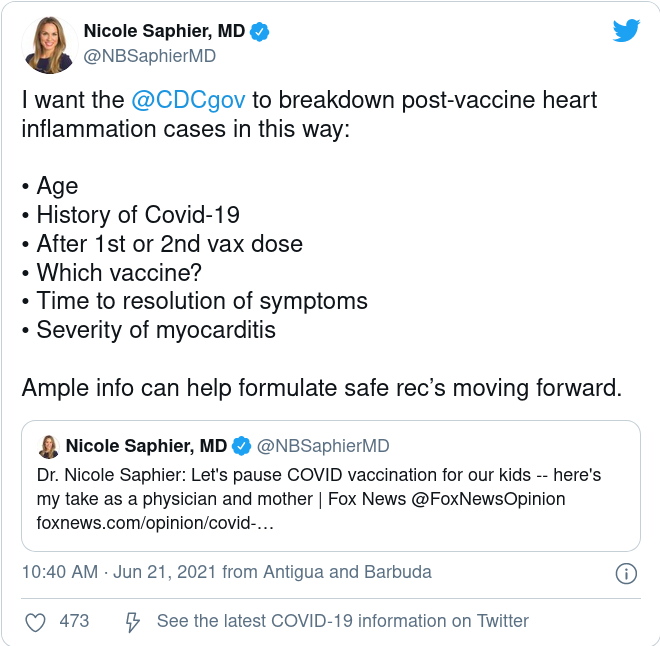- Politics
- Enigma's Music A to Z
- Blind Items
- Pic of the Day
- Bachelor
- Bachelorette
- Below Deck
- Below Deck: Down Under
- Below Deck: Mediterranean
- Real Housewives of Beverly Hills
- Real Housewives of Atlanta
- Real Housewives of Dallas
- Real Housewives of Miami
- Real Housewives of New Jersey
- Real Housewives of Dubai
- Real Housewives of New York City
- Real Housewives of Orange County
- Real Housewives of Potomac
- Real Housewives of Salt Lake City
- Real Housewives Ultimate Girl's Trip
- In Case You Missed It
- Liberal Loon of the Day
- Cut and Paste Story of the Day
Are the Experimental COVID-19 Vaccines Worth the Risk?
More and more COVID-19 vaccine patients are coming forward and sharing a litany of mild to severe symptoms that they have suffered after receiving their doses.
Ever since President Trump's speedy rollout of the Pfizer and Moderna vaccines back in December of 2020, milder symptoms have been reported. Some of these reactions incude pain, redness, or swelling where the injection was given, headache, muscle or joint pain, fever of 100.4°F (38°C) or higher, chills, upset stomach, and/or feeling tired or unwell. While most side effects have been mild and went away within 1 to 3 days after the injection. But now, more seriou and potentially permanent reactions to the Pfizer, Moderna, and AstraZeneca vaccine are being reported.
In San Diego, California, several young people experienced heart inflammation called myocarditis. Dr. Michael Welch, an allergist and immunologist at Rady Children’s Hospital, said eight cases have now been reported. More than 3000 similar cases have been reported across the country.
“They’re going to feel mainly some chest pain in the front part of their chest,” he explained. “They mail feel flutter and they might have shortness of breath.”. PARA While myocarditis has been more commonly reported in men, women account for nearly 80 percent adverse event reports. In the U.K., officials have begun investigations reports of potential negative effects of vaccines to women’s reproductive health.

According to Britain’s Vaccine Watchdog, at least 4,000 women have experienced a delayed period or bleeding heavier than usual after receiving a COVID-19 vaccine. The majority of women affected are aged 30 to 49. These effects are tied primarily to the AstraZeneca vaccine, but many have reported the same effects after taking the Pfizer and Moderna vaccines.In the release of their Phase 3 clinical trial, Moderna revealed that a few women sought treatment for swollen lymph nodes that appeared to represent a false positive for breast cancer. Experts point out these instances are very rare and it’s still unconfirmed whether or not vaccines are the actual cause of these symptoms.
© 2021 allaboutrealitytea.com

